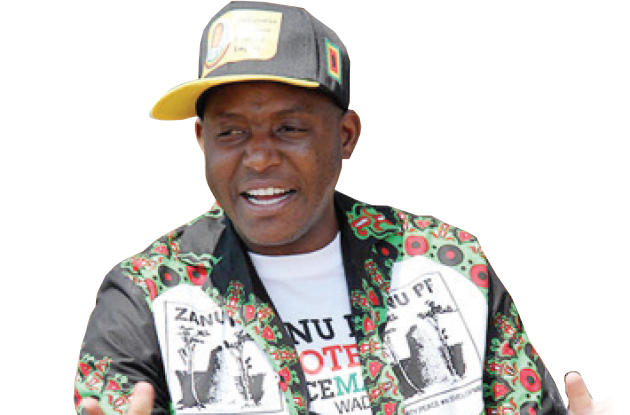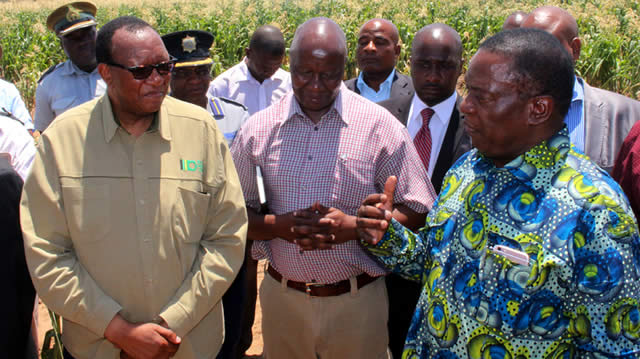Mkapa urges Africa to rethink its identity

Harare Bureau
Africa should rethink its identity in line with the vision of its founding fathers to avoid succumbing to a “second scramble for Africa” being pursued by the West, former Tanzania President Benjamin Mkapa has said. He said Africa was signing its own ‘economic death warrants’ through sealing unfair Economic Partnership Agreements (EPAs) with the European Union as the treaties militated against the spirit of African integration and disrupted intra-Africa trade.
Delivering a lecture at the National Defence College in Harare yesterday, Mkapa said Africa’s ability to decide its own future and being self-reliant was slowly waning while leaders remained ‘nonchalant’.
He also had no kind words for multilateral financial institutions like the International Monetary Fund, saying their objectives would remain alien to the African cause as the continent had no representative at their formation.“In the ‘second scramble for Africa’, perpetrators are using tactical than physical methodologies,” Mkapa said.
“Instead of employing the same tactics that yielded results in our previous fight against colonialism, we’ve allowed ourselves to be divided and ruled.
“It’s against this background that I thought I should invoke the founding fathers’ advocacy of Pan-Africanism and challenge Africa to rethink its political, economic and social identity in this increasingly globalised world so that we can assume our rightful identity of honour, dignity, self-development and decisive voice in the international arena.”
His one hour lecture was on the late Mwalimu Julius Nyerere’s Pan-African Vision. Nyerere was Tanzania’s founding president. Mkapa said the way East African countries were readying to sign economic agreements with the EU was worrying as most of the deals were murky, deceptive and uneven.
He said some leaders were benefiting from this status quo and were doing nothing to ensure an even playing field.
“Under such a state of disarray we find ourselves in, it’s difficult but unavoidable, to successfully forge a united front against such an abstract but formidable enemy without a paradigmatic re-orientation and understanding of what it is to be an African in the contemporary economic order,” Mkapa said.
“I contend that key tenets underpinning pan-Africanism will be handy in helping us to undertake that strategic reorientation. Africa is in trouble and desolated. “The state of affairs in the continent vis-à-vis the rest of the world is gloomy.”
“We today, either subconsciously or out of sheer helplessness, are almost playing implicit to our exploitation. “We shun trading among ourselves and we forge relationships and enter into agreements today with developed industrialised countries that have had adverse effects on our economies.
“The reality is Africa negotiated these agreement under unprecedented economic duress and coercion. “In the process African governments were arm-twisted into glossing over some very pertinent aspects of the agreement essentially for the EU’s economic expediency.”
From the protracted negotiations, Mkapa said, Africa would now be required to eliminate tariffs on over 80 percent of imports from the EU, abolish all export duties and taxes in some cases and remove all quantitative restrictions.
He said instead of bringing salvation, the vast natural resources in Africa had brought a curse.
“To me, the problem is to have aligned ourselves economically so much to the rest of the developed world contrary to the spirit of Mwalimu’s Pan-Africanism,” Mkapa said.
“This alignment has condemned us to being ‘hewers of wood and fetchers of water’ for our masters. “Our economic appendage to former colonialists and imperialists is still there and it unfortunately runs very deep.” He added: “Africans should strive to find African solutions to their problems. What gives me twinges of disquiet is our attitude that connote apparent intellectual inferiority complex when dealing with our own problems as Africans.
“This is a result of residual psychology of inferiority left in us by colonialism. “Whatever challenges we encounter, we’re quick in contracting foreign consultations. “We spend millions and millions of money in consultation fee for problems even the consultants learn about upon arriving in our countries.”
Mkapa said the failure by most African leaders to push for two permanent seats in the United Nations Security Council contrasted “sharply” with the rigorous advocacy for independence by the continent’s founding fathers.
“Why is Africa different in asserting and claiming this right purposefully? The campaign has got nowhere and African advocacy is at best muted,” he said. “It’s only President Mugabe as evidenced recently who has spoken avidly about this inequality in the UN.” Mkapa, accompanied by wife, has been in the country since Monday.








Comments